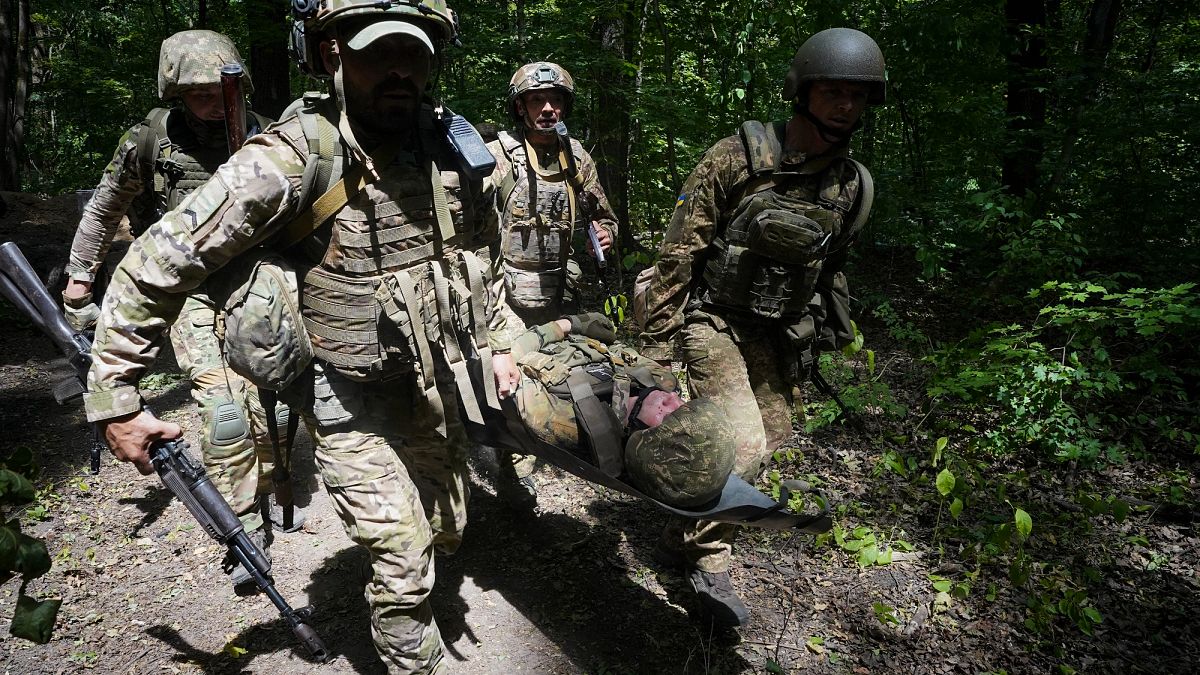European countries are in a rush to finalise security guarantees for Ukraine ahead of a possible meeting between Ukraine’s Zelenskyy and Russia’s Putin that could take place in the coming weeks.
Some 30 countries have been in talks since February as part of a so-called “Coalition of the Willing”, with the deployment of a “reassurance force” to deter Russia from any further attacks one of the ideas on the table.
“Our Chiefs of Staff have worked on it within the coalition of the willing. Several states are ready to do so, from training to logistics, to a presence in non-hot zones, that is, not on the front line, not in contested territories, but to have a presence of allied forces alongside Ukraine,” French President Macron said on Sunday.
Donald Trump made it clear on Tuesday that the US will not have boots on the ground but around 10 countries are ready to contribute troops, according to Bloomberg.
The Yes Camp
The two co-chairs of the Coalition of the Willing, France and the UK, are in.
“We are ready to put UK boots on the ground in Ukraine in part to reassure Ukrainians,” British Defence Secretary John Healey told the BBC last week.
He added that the mission could be to secure air and sea defence and to train the Ukrainian military.
The head of the British armed forces, Tony Radakin, was expected to reiterate this willingness to his American counterparts on Wednesday during a visit to Washington.
Belgium, as well as Baltic states Lithuania and Estonia, have also said they stand ready to send troops.
Dainius Žikevičius, an advisor to Lithuania’s president, told the news outlet 15min.lt in an interview released on Sunday that the mission could be similar to the former NATO mission in Afghanistan. Žikevičius added that the number of soldiers is being discussed now, but he did not reveal any numbers.
Estonia’s Prime Minister Kirsten Michal reaffirmed his willingness to provide troops this week, noting however that “it is important that work continues on the details”.
The maybes
The third Baltic state, Latvia, remains undecided. President Edgars Rinkēvičs said it’s to decide on sending troops to Ukraine, and that their decision will depend on the other security guarantees that will be provided. He told regional outlet Delfi that the country will determine its role in the mission after a peace deal is reached and security guarantees are finalised.
Sweden‘s government is also reportedly on the fence and needs further clarification on whether the mission will be about peacekeeping, deterrence or reassurance.
The No camp
Germany‘s Foreign Minister, Johann Wadephul, told a podcast on Monday that the country has little capacity to send troops to Ukraine but would instead provide important elements for the security guarantees.
Viktor Orbán’s government made it clear several times that troops from Hungary will not be deployed to Ukraine and that Budapest will also not supply any military means to its neighbour.
“There are not and will not be any plans to send the Polish military to Ukraine,” Poland‘s Deputy Prime Minister made very clear in a post on X back in May.
“Poland is jointly responsible for defending NATO’s eastern flank and for providing logistical support to its attacked neighbour, Władysław Kosiniak-Kamysz also wrote.
Similarly, Italy‘s Prime Minister Giorgia Meloni said back in March that sending Italian troops to Ukraine “is not being planned”.
Both the Netherlands and Spain have meanwhile said they stand ready to take part in security guarantees to strengthen Ukraine’s army but that it did not involve sending troops.
Read the full article here


